Resources
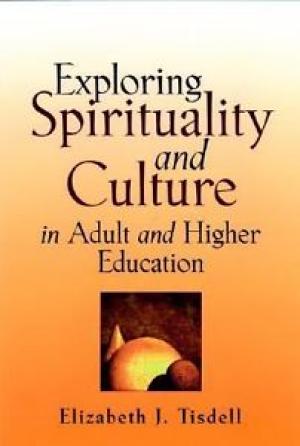
"Exploring Spirituality and Culture in Adult and Higher Education is written from the unique perspective of teacher, researcher, and author Elizabeth Tisdell, who has extensive experience dealing with culture, gender, and educational equity issues in secular adult and higher education classrooms, and formerly in pastoral and religious education settings on college campuses. This book discusses how spiritual development is informed by culture and how this knowledge is relevant to teaching and learning. For educators, an understanding of how spirituality is informed by culture, and how spirituality assists in meaning-making, can aid in their efforts to help their students' educational experiences become more transformative and culturally relevant." Throughout this book, Elizabeth Tisdell shows higher and adult educators how they can draw on both psychological and sociocultural aspects of spirituality to facilitate ongoing knowledge construction in their students - and themselves. For example, educators and students can use classroom activities that incorporate image, symbol, music, and art forms that focus on both the commonalities and differences of human experience. (From the Publisher)
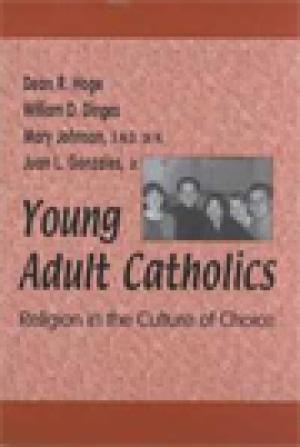
"Leaders of the American Catholic community want to and need to reach out to young adults. But effective ministry to young adults depends on an understanding of the attitudes and the needs of the current generation of Catholics in their 20s and 30s. This is why Dean Hoge, William Dinges, Mary Johnson, and Juan Gonzales began their study of young adult Catholics. How do they actually live their Catholicism? Are they alienated from the church? Are they cynical about the church's moral teachings? Do they take the pope's statements seriously? Do they attend Mass? Have significant numbers left for other churches? Do they want Catholic education for their children?" Seeking answers to these and other questions, the authors conducted a national survey in 1997, supplemented by a telephone survey and then by personal interviews with over 800 men and women across the country. The interviews put a human face on the information provided, and they form a compelling part of this timely narrative. Of special interest is the focus on Latino Catholics. The authors underscore observations that include the strength and tenacity of Catholic identity in spite of many challenges, the high level of personal decision making among those interviewed and surveyed, and the readiness of young Catholics for institutional reforms. (From the Publisher)
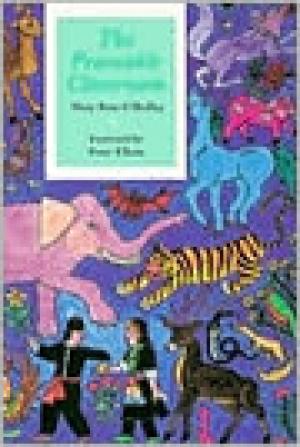
The Peaceable Classroom first defines a pedagogy of nonviolence and then analyzes certain contemporary approaches to rhetoric and literary studies in light of nonviolent theory. (From the Publisher)
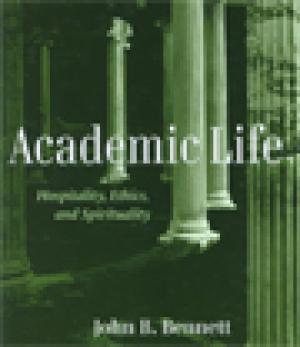
In this profound look at the academy, John Bennett reminds us that our leadership decisions always presuppose our philosophies of life and that understanding precedes practice. How we understand the communities we lead informs the many practical judgments we make about directions to take, structures to create, processes to initiate, and values to uphold. Bennett argues that faculty may understand their departments or institutions in one of two ways: as simply aggregations of individuals or as communities of intertwined persons. From these views, two different leadership values and positions emerge. The first disposes us toward seeing academic conflict as inevitable and elevates heroic leadership styles where power is understood in terms of advancing one agenda over competitors. The second underwrites leadership as supporting openness to others and emphasizes the vital contributions that can follow. By providing specific illustrations of the two modes of leadership and the nature of hospitality and openness, Academic Life presents a strong platform from which to build a rich and rewarding academic community. (From the Publisher)
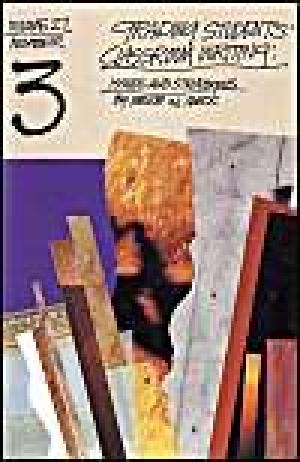
This report explores the connection between the process of writing and the process of grading. It also explains how to construct effective writing assignments, resolve issues of fairness and professional judgment, include students in the process of assessment, and provide effective feedback to students as they revise their writing. Speck synthesizes the best practices in teaching and learning to help faculty and part-time instructors envision grading as a process, not a product. (From the Publisher)
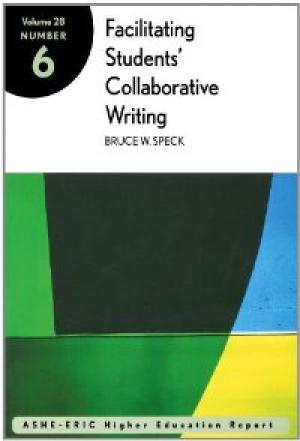
Collaboration is interwoven in the writing process in both obvious and subtle ways--from a writer using the language that he or she inherited, to referring to the works of other writers both explicitly and implicitly, to writing together with a colleague. In this book, the author explains that collaborative writing can be a useful pedagogical tool professors can use to help students actively learn about the subject matter and about themselves. (From the Publisher)
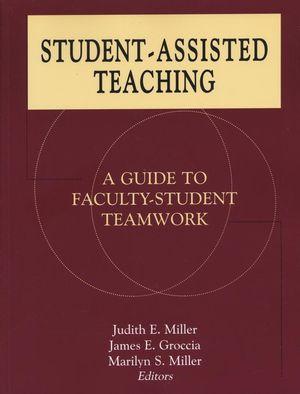
This innovative book provides a range of models for undergraduate student-assisted teaching partnerships to help faculty, faculty developers, and administrators make learning more student-centered, more effective, and more productive. Each of the 31 models included in this volume is supported with practical details and focuses on four main aspects of a specific peer-assisted learning environment: 1) implementation, 2) evidence of effectiveness and learning benefits, 3) analysis of time and cost expenditures, and 4) suggestions for replication. The chapters present a range of approaches, applications, disciplines, institutions, and contexts, and demonstrate that student-faculty partnerships can be adapted to meet diverse needs in a variety of situations. Extensive appendices aid implementation by providing concrete examples of hiring documents, training syllabi, teaching materials, and evaluation methods. (From the Publisher)
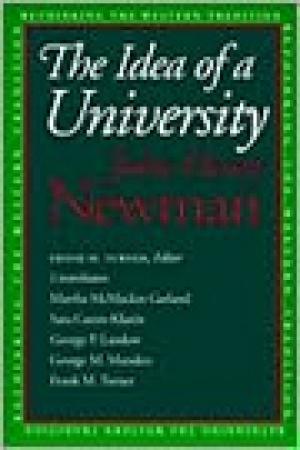
Since its publication almost 150 years ago, John Henry Cardinal Newman's The Idea of a University has had extraordinary influence on the shaping and goals of higher education. This important and accessible edition includes new essays by five leading scholars who explore the background and present day relevance of Cardinal Newman's themes, a biographical sketch of his life, questions for discussion, expanded notes, and a glossary of names. (From the Publisher)
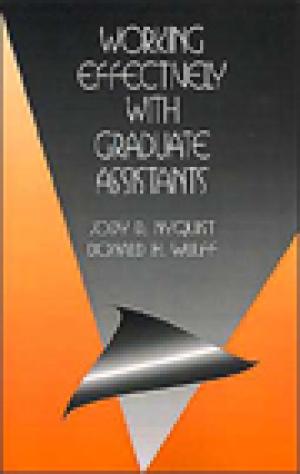
While graduate assistants are valued as labour savers, they are also a precious resource whose preprofessional training needs careful design. Written by two leading authorities in the field of instructional development, this indispensable guide details the skills necessary for academics dealing with graduate assistants. The authors provide comprehensive coverage of all aspects of assistant preparation and assessment, and a chapter addressing special needs of international graduate assistants is included. (From the Publisher)

Simulations create and use a complete environment within which students can interact to apply theory and practice skills to real-world issues related to their discipline. Simulations constitute a powerful tool for learning. They allow teachers simultaneously to integrate multiple teaching objectives in a single process. They motivate students, provide opportunities for active participation to promote deep learning, develop interactive and communication skills, and link knowledge and theory to application. This book provides an introduction to the use of simulations - from creating simple scenarios that can be completed in a single class period, to extended, complex simulations that may encompass a semester's curriculum. Assuming no prior experience in their use, the authors provide a recipe approach to selecting and designing scenarios for all sizes of class; offer guidance on creating simulated environments to meet learning objectives; and practical advice on managing the process in the classroom through to the crucial processes of debriefing and assessment. The detailed concluding description of how to plan and manage a complex simulation -- complete with its sample scenario and examples of documentation - provides a rich demonstration of the process. This book will appeal to anyone, in virtually any field of study, looking for effective ways to bridge the gap between academic learning and discipline-specific practice. (From the Publisher)